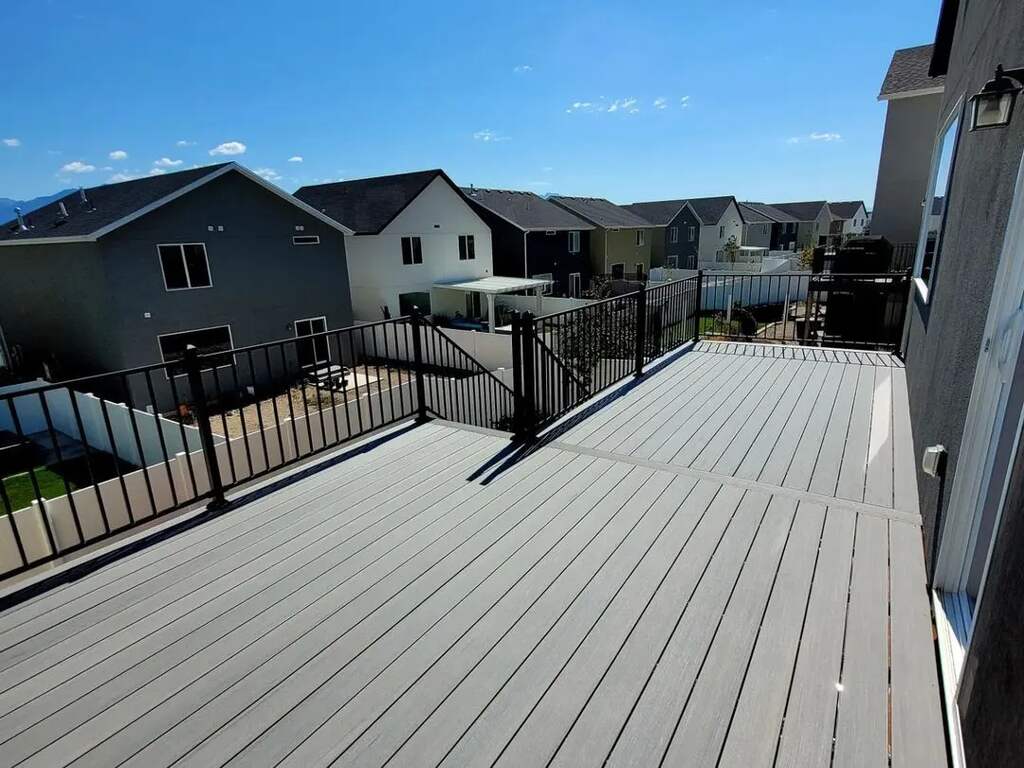By using our website, you agree to the use of cookies as described in our Cookie Policy

Utah weather puts decks through a real test. From hot summers to snowy winters, your deck materials need to handle it all. The choice between wood and composite decking affects how your deck holds up over time, what maintenance it needs, and how it looks years after installation.
How Utah Weather Tests Deck Materials
- Summer heat up to 100°F
- Winter freezes below 20°F
- Sudden temperature changes
- Heavy snow loads
- Strong UV exposure
These conditions affect wood and composite materials differently. Wood can crack and warp with temperature swings, while quality composites stay stable. In Saratoga Springs, where weather can change fast, material choice matters more than many homeowners think.
Wood Performance Through The Seasons
Traditional wood decks show their beauty right away. Cedar and redwood handle moisture well, but they need regular care to stay looking good. Even treated lumber changes color and texture over time as UV rays break down the wood fibers.
Composite Advantages in Tough Weather
Modern composite decking stands up to Utah's weather challenges better than wood. It won't splinter, crack, or need constant refinishing. TC Decks often recommends composite materials for clients who want long-term performance with less upkeep.
Yearly Maintenance Requirements
- Wood needs annual sealing
- Regular staining every 2-3 years
- Splinter repairs
- Board replacements
- Snow damage fixes
These maintenance tasks add up in time and money. Composite decking needs simple cleaning with soap and water. No sealing, no staining, and very few repairs mean more time enjoying your deck instead of working on it.
Long Term Cost Differences
While wood costs less upfront, maintenance expenses over 10-15 years often exceed the initial savings. Composite decking costs more to install but needs minimal upkeep. Many homeowners in Saratoga Springs find the long-term value worth the investment.
Common Questions About Deck Materials
How long do wood decks last in Utah? With proper maintenance, wood decks typically last 15-20 years. However, individual boards might need replacement sooner due to weather damage.
Do composite decks get too hot in summer? Light-colored composites stay cooler than dark ones. New composites include technology that reduces heat absorption.
Which material handles snow better? Composite decking resists moisture damage from snow and ice better than wood, reducing the risk of warping and rot.
Make The Right Choice For Your Home
Ready to build a deck that stands up to Utah weather? Let's talk about which material works best for your needs and budget. Contact TC Decks or call 801-472-8939 to discuss your deck project with our experts.
‹ Back




